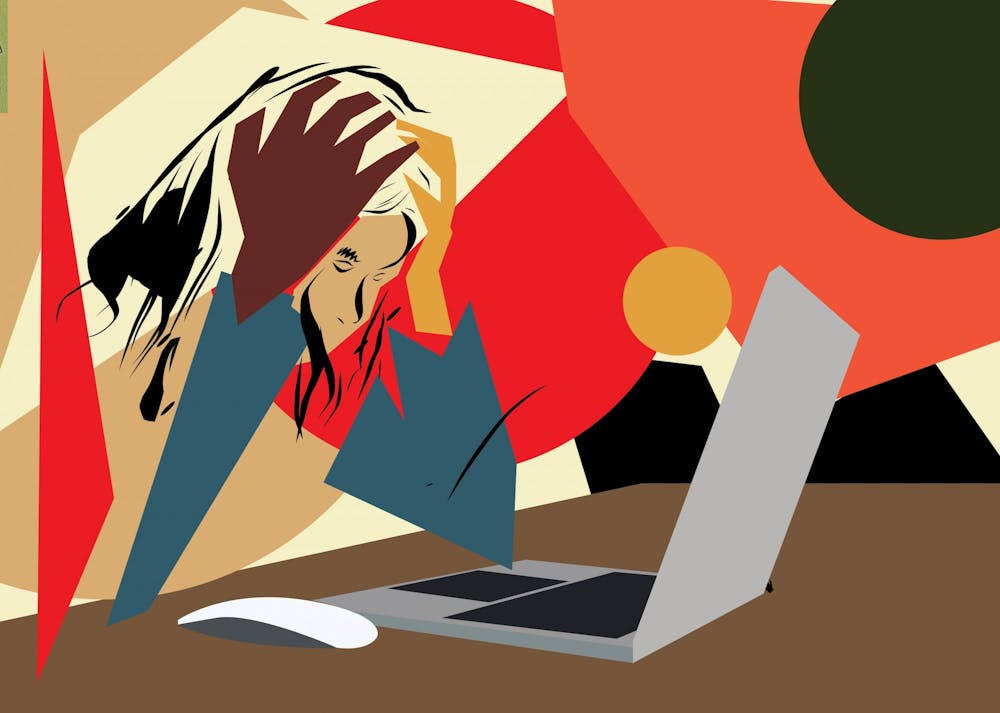Universities around the country, such as Yale, Temple and the University of Miami, are going back to remote learning due to the spread of the COVID-19 omicron variant. ASU, on the other hand, has not indicated plans to move classes online.
That was the right decision.
In the second week of classes, there was a record 2,345 COVID-19 cases reported among students, staff and faculty at ASU. It would make perfect sense for ASU to consider remote learning, at least temporarily, until the spread of COVID-19 starts to settle. Unfortunately, remote learning would do more harm than good when it comes to the disabled and access community at ASU.
When it comes to disabled and access students who are immunocompromised, I 100% agree that they should be as safe as possible and not return to class. If you know someone who is immunocompromised, be as safe as possible. Wear a mask, get vaccinated, and if you've been exposed, stay home. I have family members and friends who are immunocompromised and will always look out for their best interests.
The problem with high schools and universities moving to online learning is that they don’t account for the unintended consequences for disabled and access students. As a student with epilepsy and anxiety, it stresses me out just thinking about classes moving back online, even if ASU hasn’t put it on the table.
During 2020 into late 2021, I suffered a lot of anxiety attacks and had to have my medicine increased to the point where I could barely function. I was sleepy every day and would nap during the day and would be unable to sleep during the night. Due to how my medicine was affecting me, and how the new medicine wasn't really effective, I had lots of homework that ended up being late. Since my late work was piling up, my stress levels would increase to the point where I would have anxiety attacks and migraines.
Stress is also a big factor when it comes to remote learning. According to NBC News, 56.4% of high school students reported their stress levels increased. Eighty-four percent of remote students also reported stress-related symptoms, such as headaches, exhaustion and insomnia.
Joseph Sirven, epileptologist for the Mayo Clinic and a professor of neurology with the College of Health Solutions at ASU, described how remote classes could affect students’ abilities.
“(Remote learning) most likely can lead to stress for a number of reasons,” Sirven said. “Particularly if something is not understood, if the technology isn’t working," and when staying in the same environment for a long time.
According to Sirven, the best ways to fight stress and anxiety when it comes to remote classes are to exercise and change your surroundings. Students should also ask for accommodations, such as flexible deadlines.
ASU is taking precautions to make in-person learning possible. The University has implemented daily health checks that started Monday, Jan. 17, along with making masks required for all classrooms.
The bad news is that while COVID-19 cases are predicted to go down in Arizona by mid-February, COVID-19 cases have been exponentially increasing since the beginning of the new year. Despite the increasing number of COVID-19 cases, it’s important for students to have the option to take in-person classes. Students shouldn’t come to class if they feel sick or were exposed anyway. As long as we keep each other safe by wearing masks and not coming to class sick, ASU students and faculty members should be fine.
Reach the reporter at wjbrown@asu.edu and follow @JakeBrownASU on Twitter.
Like The State Press on Facebook and follow @thestatepress on Twitter.
Editor's note: The opinions presented in this column are the author's and do not imply any endorsement from The State Press or its editors.
Want to join the conversation? Send an email to opiniondesk.statepress@gmail.com. Keep letters under 500 words and be sure to include your university affiliation. Anonymity will not be granted.




